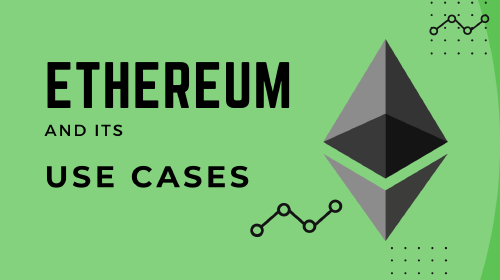How Blockchain Technology Benefits Everyday Business Owners
Salomon Kisters
May 25, 2021This post may contain affiliate links. If you use these links to buy something we may earn a commission. Thanks!
Blockchain is one of the hot words this year, but it’s also one of the least understood. Blockchain is a powerful technical innovation that can do more for you as a business owner than the cryptocurrency that often uses it can.
Understanding the benefits of blockchain technology is immensely helpful in determining if it will benefit your business. From there, you can see how it’s changing many niches around the world. You may be surprised where it could go in your niche.
Uses for Blockchain in Business
Blockchain is slowly going from a fringe system only used with cryptocurrency to legitimate business use for use cases such as building an LoB app on blockchain. It’s becoming more common due to the transparency it offers you and your business partners for every transaction.
Establishing Trust
Blockchains establish a certain level of trust by the nature of their construction. For example, no records can be deleted, and everyone on the chain can view the whole of the blocks. This transparency is vital in business.
Additionally, the encryption key arrangement is vital. You and your business should have the keys to the blocks you own so you can make edits to the records. Then the consensus process must verify those edits. The blockchain provides you with more legitimacy than you would have on your own.
Transfer of Value
One of the original uses for blockchain technology was transferring the value of various cryptocurrencies. Blockchain technology can still be used for this purpose. Now, the possible items you can exchange value with have significantly expanded, in any case.
Establishing Contracts
Being part of a blockchain eliminates the necessity of a middleman for many varieties of contracts. The technology offers an immutable record, verification of identity, and the ability to establish binding terms.
All three of these components are vital pieces to contracts from financial institutions, among others. While these contracts have not been actively tested in law courts, current indications favor blockchain to be treated the same as a standard contract under the law.
Timestamps
Ensuring documents are authentic and unaltered is essential. However, conventional methods leave a little room for doubt, which can harm your business. This fact is especially true with documents you’re simply emailing back and forth.
Every transaction in blockchain carries a timestamp that cannot be altered. Using timestamping, you can ensure your document is precisely the same as when you created or signed it. You may find this helpful if you work on open-source projects as well.
Smart Contracts
Smart contracts can refer to a few different items. The first is the idea that people can use their encryption keys to sign contracts using blockchain technology. These contracts are considered smart because they use the technology to verify identities and hold the record.
You can also set up smart contracts using blockchain to auto-execute when certain conditions occur. Since the record on a block is simply data, you can store a code snippet in there. Then the contract could line up to purchase a specific stock once the price is right, for example.
Audits
You cannot delete blockchain records, and every one has a timestamp. You can even add extra metadata options to blocks for auditing purposes. It’s a wonderful way to show the history of your files or transactions whenever you need it.
Custom Solutions
Blockchain is still evolving, so there is much room for innovation. Perhaps you need a feature not listed, or your company wants to start its own blockchain program with custom fields. Those are all still viable options.
What is Blockchain?
People and websites describe blockchain technology in many different ways, and that only confuses the issue. A blockchain is a series of data pieces maintained on distinct computers that all members can view. However, their owners can only edit the elements, and the whole chain must approve transactions.
If you would like to know more about the vocabulary of blockchain technology, check out the article here.
Blocks
A block is the basic blockchain unit, and the word refers to a record in a blockchain. These records can contain varying amounts and types of data, which depends on the nature of the blockchain. For example, a block in a cryptocurrency includes the sender, receiver, and amount of information. Meanwhile, a timestamp might contain the author’s name, the date, and the time.
Apart from the record or data, each block also has two unique markers called hashes. The block carries its own hash and the one for the block in front of it on the chain. This hash is how blockchains are stored and how security is maintained.
Blocks in a blockchain are stored linearly. This standard means that the blocks are ordered from oldest to newest, with the newest ones on the end. Blocks cannot be taken off the chain at any point, so you may see some lengthy blockchains.
Genesis
Genesis is the first block in a blockchain, and thus, the original block that the others attach to. If you examine the numbering of the blocks, the genesis block receives the label ‘0’ rather than ‘1.’ This prevents records confusion.
The genesis block is similar to all other blocks in the chain in how it behaves. However, most genesis blocks hold the rules and configurations that govern the specific blockchain. If your transaction fails to follow the rules, your action will not go through.
Rarely, you may come across genesis blocks that do not contain the rules or configurations for the chain. You may need to be wary of blockchains without clear guidance listed in the genesis block.
Nodes
Nodes are specific blocks within a blockchain that control the addition of new blocks. Nodes typically network with peer blocks, which provides decentralized control over the blocks. Which blocks are nodes will vary from blockchain to blockchain.
Consensus
Before a blockchain technology transaction can be added to the chain, it must go through the consensus process. The consensus process ensures that the transaction or record addition meets the requirements outlined in the genesis block and that it is legitimate.
There are currently an innumerable number of consensus processes available for blockchains. However, there are four common ones that you may want to be aware of as you consider blockchain:
Proof-of-Work (PoW)
Proof-of-Stake (PoS)
Delegated Proof-of-Stake (DPoS)
Practical Byzantine Fault Tolerance (PBFT)
For further information on the four common consensus methods, check here.
Hash Values
Hash values are a significant security feature of blockchain technology. A hash is a math function where you can enter any input length and always produce the same output length. This fact makes them exceedingly difficult to reverse engineer.
The reason hash values are so helpful is their one-way characteristic since they are difficult to reverse engineer. However, if you put the same input into the hash algorithm, it will always give you the same hash. This property allows you to authenticate any block in a blockchain by its hash without exposing the original input.
Additionally, there should not be two inputs that generate the same hash value. This fact adds security to the blockchain technology. It also means that the inputs can be drawn from as vast a pool as possible, which reduces the possibility of reverse engineering a hash further.
Public and Private Keys
One of the most widely used yet underrecognized tools on the internet is the key system for end-to-end encryption. End-to-end is used to secure everything from email to banking information. The technology is also used to ensure you can only edit the blocks you own in the blockchain.
For starters, a public key is a generated tool that you release publicly so anyone can get ahold of it. The public key matches a second generated sequence called the private key, which you give to no one. If someone sends you something with your public key, only you can decrypt it with your private key.
While the term key may suggest something simple, the public keys have 2048 bits (504 characters) or more. Private keys tend to be smaller. Blockchain transactions rely on public and private keys to enable transactions between parties and the ability to control blocks.
The Blockchain Process for Business
Now that all the terms are out of the way, it’s time to demonstrate how your business can use this technology. The process of using blockchain technology for business resembles cryptocurrency, but your business must take a few extra precautions.
Find a Reliable Provider
Suppose you are not comfortable with blockchain or have experience with the coding aspects. In that case, you may want to outsource part of the implementation. There are many reputable blockchain technology businesses out there that can help you find the right blockchain solution in your situation.
For example, OriginStamp offers Timestamp APIs for securing documents, Event APIs for easy audits, and consultations on custom blockchain development. The company provides extensive experience working with blockchain technology and integrating APIs for business partners who need those skills.
Request for Transaction
The first step in being added to a blockchain is requesting some form of transaction, which can be either monetary or data. From there, your request will be sent out to the nodes for verification and consensus.
Consensus
Consensus uses the peer-to-peer networked nodes in the blockchain. These nodes confirm user identities and pertinent information before deciding whether to accept the transaction. If the algorithms are favorable, your transaction will be approved.
With transaction approval through the consensus process, a new block will be added to the chain with the transaction record and timestamp. You will also receive information on your new block for your records, such as the key.
Replication
Blockchain relies on publicly viewable transactions, at least to other chain members. The ledger, or record of blocks, is held by every single member. When a new block is added, replication of the block into every ledger copy along with the blockchain must happen promptly. Once this process is complete, you have an immutable record of the transaction that will never disappear.
Fields That Blockchain Will Change
Blockchain is poised to interrupt many industries, likely including yours. It’s the future of secure transactions and an outstanding tool to work with. Will you be at the forefront of innovation in your industry?
Supply Chain Management
Imagine knowing when the apple in your hand was picked, how long it spent at the packing plant, when it arrived at the grocery store, and how long it’s been on your counter. All of these timestamps are possible with blockchain technology, and it will reduce food waste.
Another widespread problem in supply chain management is maintaining authenticity as items ship around the world. Blockchain removes the opportunity to insert counterfeit goods since everything is tracked.
The added efficiency also means reduced transportation costs. In the supply chain management sector, those traditional costs become profit. Plus, consumers are happier due to the increased transparency of where everything comes from.
Healthcare
Right now, healthcare records are inconvenient at best. Switching doctors or seeing specialists often requires carrying your own records. The alternative is filling out a few forms and hoping the doctor’s office sort themselves out.
With blockchain, the patient controls their records. They could sign access to a doctor’s office in under a minute and then get updated records before they leave, documenting any changes. It will revolutionize medicine.
Energy
Right now, most electricity providers have a monopoly on their area. Many are uninterested in changing their methods. However, new players in the industry are using blockchain to create a customer-orientated approach.
Using smart contracts, blockchain-enabled energy companies can trade units of energy amongst themselves without human oversight. Additionally, the industry may move to smart contracts with consumers to remove the troubles with the current billing system.
Real Estate
Intermediaries currently paralyze the real estate industry. There’s the realtor, the broker, the mortgage underwriter, and so on that only slow the process down. These go-betweens also cut into the profits for the buyer and seller.
With blockchain, most of the intermediaries are no longer necessary. The buyer’s identity and assets are readily available for the seller to see. That makes blockchain both cost-effective and better able to handle transactions in real estate quickly.
Travel
Right now, it’s hard to imagine travel without paying for the ticket or needing to put a credit card on a room at a hotel. With blockchain, though, those inefficiencies could go away. Instead, you could use blockchain to set everything up and then only verify your identity.
Additionally, blockchain is not controlled by a government, so it could become a global identification system. With people verifying they are whom they say, everyone could function as global citizens.
Banking
Blockchain has already started changing the financial sector as a whole and banking in particular. The current banking system relies on the centralization of information. Blockchain outright threatens that dominance since no one company owns the records.
Blockchain technology could also take over many functions of a bank. For example, blockchain contracts could take over mortgages and loans. You may even prefer blockchain since everything is transparent, timestamped, and available.
Blockchain also already handles what most people consider essential about banks. People routinely exchange money using blockchain already without fees. It is not a stretch to see it grow further and become a preferred method over the fees on transactions from banks.
Government
Right now, government record keeping is unwieldy and difficult for ordinary people to access. With blockchain, people could manage their own records and make their own changes without waiting in line for hours.
Blockchain could also remove the dread of taxes. In the U.S., citizens must manually figure their taxes and then pay the appropriate amount. If they complete their taxes incorrectly, they face penalties. With blockchain, the records are readily available, and an algorithm could do the work.
Voting is another area where blockchain is valuable. Blockchain can verify identities, prevent hacking, timestamp everything, and ensure every vote counts without adding more work to elections. Voting with blockchain technology could be more efficient by far.
Intellectual Property
Protecting your ideas and your business’s intellectual property is necessary, especially with all the trade secret theft. Blockchain helps you easily document your thoughts and timestamp them so that you can prove their authenticity.
Blockchain can also help open-source creators claim their projects. They can track each entry in the blockchain. Using this verification method prevents many of the common issues where open source doesn’t stay open source.
Conclusion
Initially, blockchain technology can come across as inconsequential. However, once you see what it can do for your business and how it is changing industries like yours, you will likely want to know more about this stunning jump in technology.
To learn more about blockchain technology, check out the OriginStamp blog for the latest information, business options, and timestamping services.
Stay informed with the latest insights in Crypto, Blockchain, and Cyber-Security! Subscribe to our newsletter now to receive exclusive updates, expert analyses, and current developments directly to your inbox. Don't miss the opportunity to expand your knowledge and stay up-to-date.
Love what you're reading? Subscribe for top stories in Crypto, Blockchain, and Cyber-Security. Stay informed with exclusive updates.
Please note that the Content may have been generated with the Help of AI. The editorial content of OriginStamp AG does not constitute a recommendation for investment or purchase advice. In principle, an investment can also lead to a total loss. Therefore, please seek advice before making an investment decision.

Using Blockchain Technology to Differentiate Your Business - A Competitive Advantage Guide
Learn how to leverage blockchain technology to gain a competitive advantage in your business. Explore examples and benefits of using blockchain for non-functional requirements.

Ethereum: Decentralized Blockchain Platform & Use Cases
Learn about Ethereum, a decentralized blockchain platform with smart contract functionality. Explore its use cases, how to buy Ether, and the benefits of OriginStamp.

Protect Your Ideas Using Blockchain Technology: A Comprehensive Guide
A Comprehensive Guide - Learn how to safeguard your intellectual property with blockchain technology to prevent theft and secure ownership.
Protect your documents
Your gateway to unforgeable data. Imprint the authenticity of your information with our blockchain timestamp